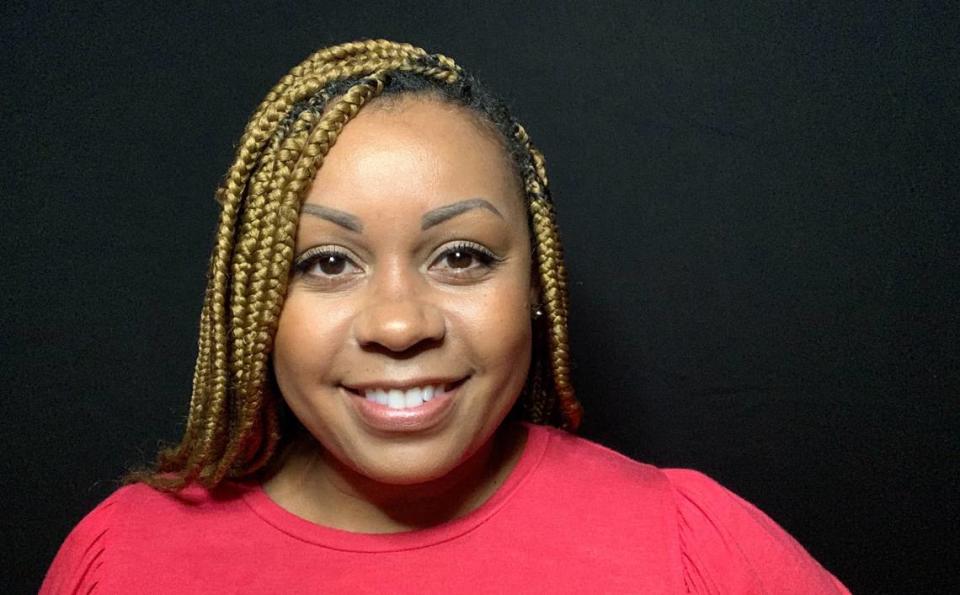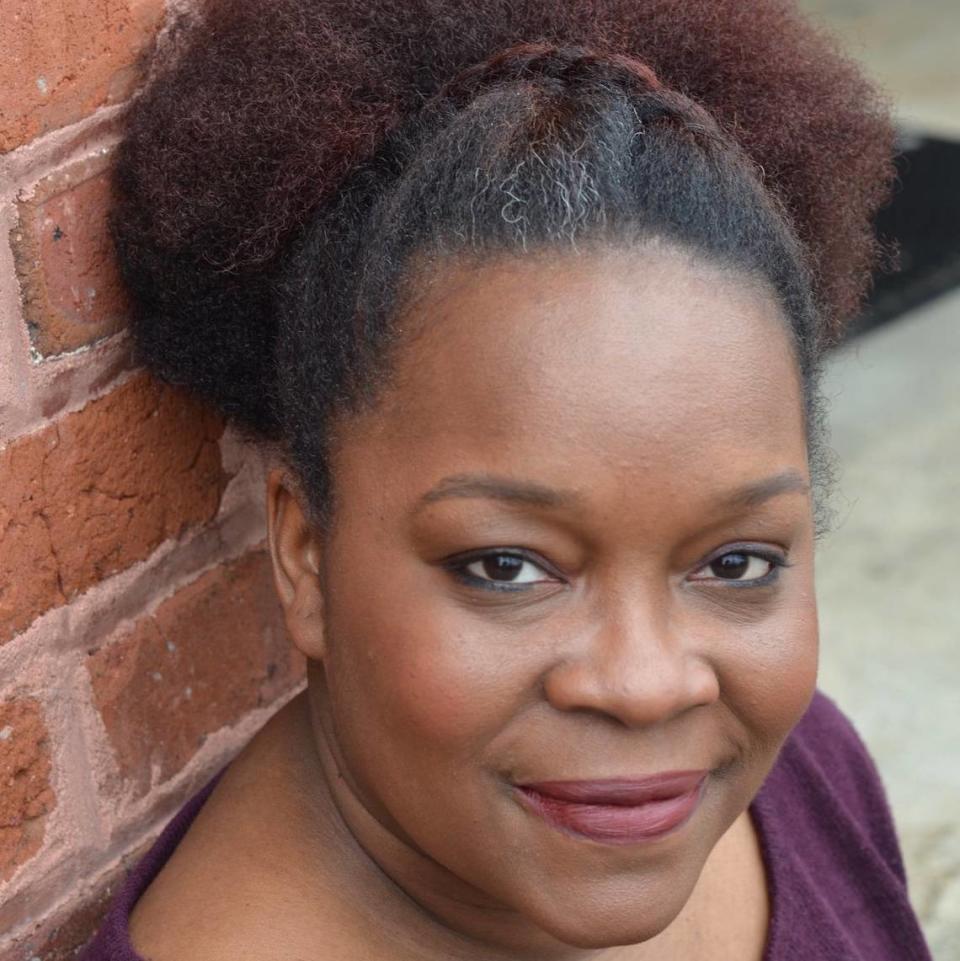These artists have a goal for Charlotte: Prioritize diversity, equity and inclusion
In the midst of social justice protests last summer, a group of local artists and arts leaders began meeting online to discuss an ugly truth: The arts and entertainment world has long been permeated by inequities that hinder the careers of many Black artists and other artists of color.
Now that group has evolved into a new nonprofit organization, focused on taking action. Diversity On & Off Stage wants to serve as a resource and an accountability partner to help Charlotte-area arts organizations make substantive changes to ensure opportunities and support exist for everyone.
On Aug. 30, the group will officially celebrate its one-year anniversary with its first public event in person, which will be free. Registration details will be forthcoming on the group’s Instagram and Facebook pages, along with its website, diversityonandoffstage.org.
Here’s a look at how the past year has gone and where the group is headed.
Raising awareness
The idea for launching conversations initially came from members of Queen City Comedy, who had seen some of the nation’s leading improv and sketch comedy organizations falter under public scrutiny for a lack of diversity.
They wanted to be proactive in Charlotte and reached out to other arts organizations.
Diversity On & Off Stage hosted its first virtual gathering in July 2020, with artists and administrators from across a spectrum of creative fields.
“In the beginning, it was raw emotion,” said Arlethia Hailstock, co-chair of Diversity On & Off Stage. She also serves as the school performance coordinator and staff equity, diversity and inclusion lead at Children’s Theatre of Charlotte. “It was tons of people joining a call and just spilling their guts.”

The group’s original objective was to provide a safe space for artists of color to share their personal experiences with discrimination they encountered locally while pursuing their art.
Over time, the monthly conversations shifted focus from the arts community as a whole to discipline-specific chats on music, dance, comedy, film, visual arts and fashion. (Past events are archived on the group’s Facebook page.)
Chats about the same issues kept recurring: Artists have been unable to access needed funding or venue space to showcase their art.
Encouraging leaders from larger organizations and venue owners to join the Zoom calls to hear these first-hand accounts also has been an intentional part of the process.
“I’ve really tried to focus on listening,” said Blumenthal Performing Arts President and CEO Tom Gabbard, who regularly attends the collective’s monthly Zoom calls.
“At first there was a very intentional goal to talk about hard things and things where people had run into obstacles or been discriminated against, or found it difficult for them to pursue their art because of their color,” he said. “And so for us to hear those stories and understand the difficulty that artists had faced — that was really important.”
Gradually, the conversation steered toward ways to do better and inspiring examples of people who are creating new models of success.
The hurt is real and needed to be acknowledged, Gabbard said, but the conversation didn’t get stuck there. “It moved ahead, and I give credit to the group for doing that.”
The group’s leaders say clearly defining its mission was key. Deciding to become a nonprofit organization to better facilitate the ongoing nature of their work was also significant.
“I feel very proud to be a part of it because I see the shift,” said Ana Ogbueze, founder of the hip-hop studio NC Dance District and vice chair of the organization. “I see the mindset changing. I see people having conversations, and I think it’s just a beautiful thing. I feel like somebody just had to get the ball rolling, and now it’s about keeping it rolling.”
Taking action
The nonprofit has created an online pledge through which individuals and organizations commit to prioritizing diversity, equity and inclusion.
For organizational leaders, this public commitment also calls for instituting continual education for staff and board leaders, as well as setting a timeline to build and implement a plan of action. To date, 44 individuals and organizations have taken the pledge, including Gabbard and Blumenthal Performing Arts, Richard Thurmond of Charlotte Center City Partners, John Tosco of Tosco Music and Caroline Calouche of Caroline Calouche & Co.
Establishing this commitment will help the organization assess progress, provide resources and act as an accountability partner.
“We know it’s going to take time — this is a big shift,” said co-chair Tiffany Bryant-Jackson, who is also the founder of Open Cage Productions.
But she has been gratified to see some organizations already making moves to address problems.
For instance, Blumenthal Performing Arts — where she works part time as a senior customer service representative — now has a diversity committee on staff that works to hold people accountable, including Board of Trustees members.
She also cites Free Reign Theatre Company, which asked the nonprofit for help devising a plan to make its organization more inclusive, including seeking out diverse directors for productions.
Gabbard said his experience with the On & Off Stage group has influenced changes to Blumenthal’s advertising practices for hiring new positions or posting casting notices.
“We weren’t getting the opportunity in front of the right people or enough people,” Gabbard said. “And by limiting the advertising, it perhaps unintentionally conveyed some exclusivity that we didn’t want.”

The nonprofit is committed to advocating for real change, Bryant-Jackson said. “We can’t keep doing the same thing every cycle of a big injustice,” she said. “It’s performative acts that maintain the status quo.”
Moving forward
Diversity On & Off Stage would like to see other changes, too, including:
Organizations looking carefully at their board and leadership composition to make sure they are inclusive.
Collaborations between more established arts organizations and smaller groups led by people of color to increase access to performance space and other resources.
Internships and mentorships to support more women and people of color wanting to break into fields such as entertainment booking at music and comedy venues, which are dominated by white men.
Increased representation on stages throughout the year, not just in February, during Black History Month.
“We’ve really just scratched the surface,” Hailstock said. “So much of this work was productive and successful over the past year because we were stuck at home and couldn’t turn away from George Floyd, Breonna Taylor, Ahmaud Arbery and we all were forced to look at it. And that, in turn, forced organizations to hold mirrors up to themselves …
“We can’t get weary because we are in place again, and we’re excited to hug people again,” she said. “There’s still so much work to be done.”
More arts coverage
Want to see more stories like this? You can join our Facebook group, “Inside Charlotte Arts,” at https://www.facebook.com/groups/insidecharlottearts/

